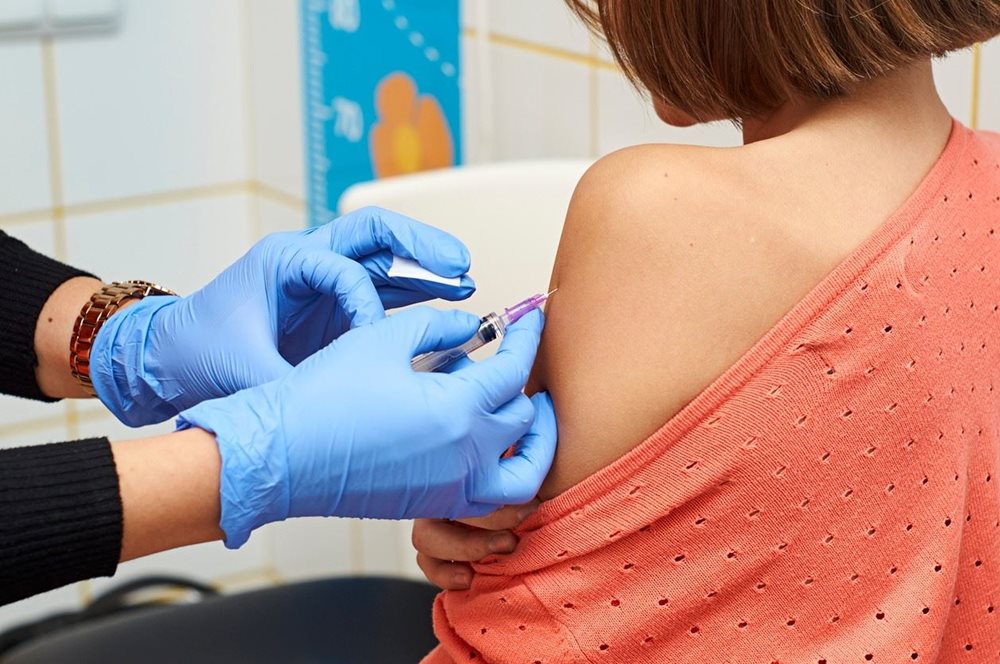
Despite the fact that medical experts have come out in force negating claims that the HPV vaccine is dangerous, there’s still a lingering doubt in many people’s minds. So, should you allow your child to get vaccinated or not? Here are the facts.
What is the HPV Vaccine?
The Gardasil vaccine, which is the brand of HPV vaccine used in Ireland, protects against cervical cancer later in life when administered to young girls aged 12 or 13. According to the HSE it can be administered up to the age of 26, but works best in women under the age of 15. In Ireland, the vaccine has been available free of charge for school girls across the country since 2010.
Cervical Cancer
According to the Irish Cancer Society, every year in Ireland approximately 300 women are diagnosed with cervical cancer. It’s the second most common form of cancer in women in Europe.
Fears about the HPV Vaccine
The vaccine has been approved by The World Health Organisation, The International Federation of Obstetricians and Gynecologists and The National Immunisation Advisory Committee. It is considered highly effective in preventing cervical cancer by the worldwide medical community. Yet doubts arose about its safety in recent years, following reports of adverse reactions and side effects such as chronic fatigue, fibromyalgia and loss of consciousness, reported in Japan, Holland, Denmark, Italy and Mexico.
In Ireland, a small group of parents founded a support group – Regret - to raise awareness of the issue and to get help for their daughters.
The uptake of the vaccine in schools around the country fell to a low of 50 per cent in 2016, in comparison to a peak of 90 per cent, in the seven years since the vaccine was first introduced by the HSE.

HPV Controversy:
“The controversy over the HPV vaccine has been due to the reports of suspected side effects in vaccinated girls, including Postural Orthostatic Tachycardia Syndrome (POTS), Chronic Regional Pain Syndrome (CRPS) and Chronic Fatigue Syndrome (CFS),” explains Dr Neil Reddy of Precision Health.
Postural orthostatic tachycardia syndrome (POTS) is an autonomic disturbance characterised by light‐headedness, fatigue, sweating, tremor, anxiety, palpitation, exercise intolerance and dizziness.
Complex regional pain syndrome (CRPS) is a chronic pain condition which usually affects one limb after an injury. It’s usually the result of damage to the nervous system.
Chronic Fatigue Syndrome (CFS), also referred to as ME, meanwhile is a medical condition characterised by long term fatigue.
“Girls who developed these conditions related the onset of the symptoms to the vaccination,” explains Dr Reddy.
The Facts about HPV:
Despite these claims however, the medical community in Ireland has come out in force, negating the findings of any studies purporting that the Gardasil vaccine is unsafe.
Dr Reddy points out that all medicines here in Ireland, including the Gardasil vaccine, are regulated by the Health Products Regulatory Authority (HPRA) and the European Medicines Agency (EMA). “Both of these agencies have evaluated the vaccine multiple times and found that the rates of POTS, CRPS and CFS are no higher in vaccinated individuals than in unvaccinated individuals,” he says.

HSE HPV School’s Programme Campaign:
In August 2016, the HSE launched a campaign to encourage parents to have their daughters vaccinated.
At a conference to launch the campaign, Dr Karina Butler of Our Lady's Hospital in Crumlin, said she was assured of the safety of the vaccine. She reported evidence that cases of reported illnesses, although coinciding with the administration of the vaccine, were not related to it. It was no more dangerous than penicillin, she added. “This is a vaccine that can save lives. It works," she said.
For more information on the HPV School’s Programme visit HSE website
About Dr. Neil Reddy
MB BCh BAO (Hons), B.Med.Sci, LFOM, MSc (Health Informatics), MSc (Clinical Education)
Dr. Neil Reddy of Precision Health is a Licentiate of the Faculty of Occupational Medicine of the Royal College of Physicians of Ireland. He has extensive experience in the design and delivery of health screening and wellness programmes for small and large clients, including several multinational companies.